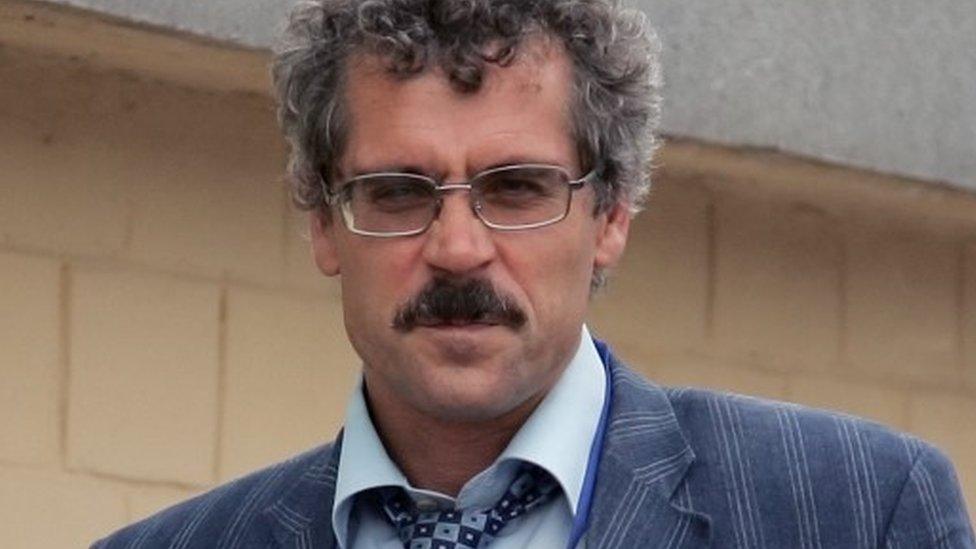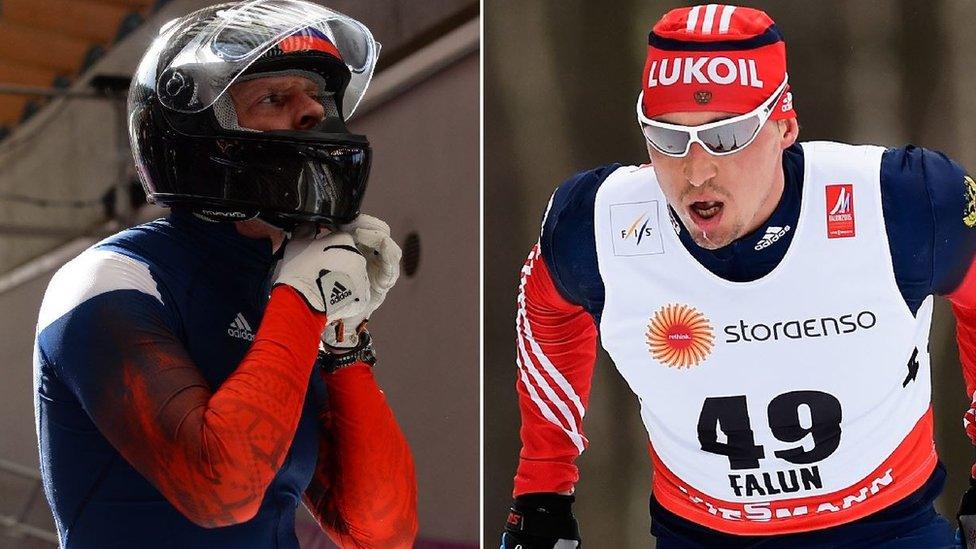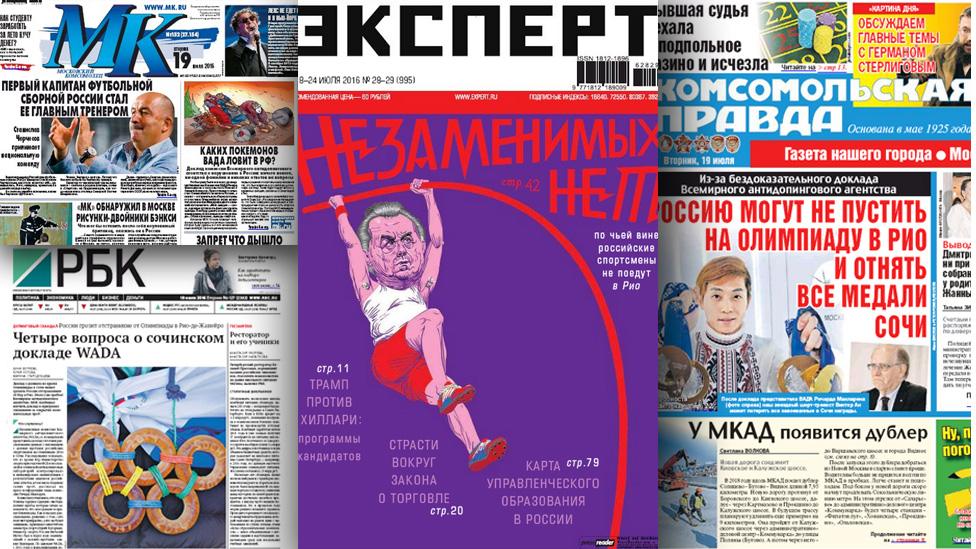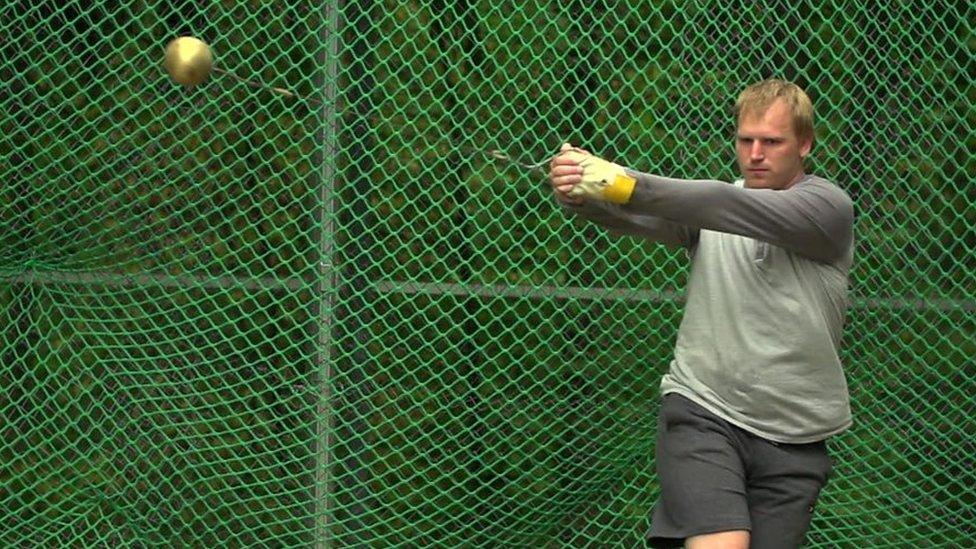Russian doping: Who is whistleblower Grigory Rodchenkov?
- Published

Mr Rodchenkov offered to provide information about "state-mandated" doping
Grigory Rodchenkov says he created substances to help Russian Olympic athletes perform better and switched urine samples so that they could evade detection.
The man who was director of Russia's anti-doping laboratory during the 2014 Sochi Winter Olympics told the New York Times, external earlier this year that the Russian intelligence services had helped by devising a way of opening and resealing urine containers previously believed to be tamper-proof.
His revelations prompted an investigation by the World Anti-Doping Agency (Wada), which on Monday said Russia had operated a state-sponsored doping programme for four years across the "vast majority" of summer and winter Olympic sports.
The Wada report has sparked calls for the entire Russian team to be banned from the Rio Olympics.
But Russian President Vladimir Putin said it represented a "dangerous slide towards political interference in sport" that stemmed from "one man with a scandalous reputation", the Moscow Times, external reports.
'At the heart of doping'
Mr Rodchenkov was once viewed more favourably by the Russian authorities. Russia won most medals at the Sochi Games and he was awarded a medal afterwards.
Russian hammer thrower Sergey Litvinov fears for future
However last November an earlier Wada report, external accused him of being "at the heart" of doping in Russian sport, asking for and accepting bribes and destroying more than 1,400 blood and urine samples.
He was forced to resign and in January fled to the US, fearing for his safety.
In February, two former senior officials at the previously Wada-accredited Russian anti-doping agency died unexpectedly, external.
In his interview with the New York Times, Mr Rodchenko said doping athletes was part of his job and his laboratory would have stopped receiving funding if he had not done it.
He had previously been investigated in Russia for trafficking in performance-enhancing drugs but said he was not jailed because the Russian authorities had earmarked him to dope their athletes at the Sochi Games.
At the time, the Kremlin dismissed his allegations as "slander by a turncoat".

Skier Alexander Legkov (R) and bobsledder Alexander Zubkov deny doping allegations
But Russia's leading sports newspaper Sport Express took a different view, saying Mr Rodchenkov knew "if not everything, then nearly everything".
He and the documentary maker Bryan Fogel - who helped him leave Russia - wrote to Wada and the International Olympic Committee with an offer of more information about a "state-mandated doping program in Russia", according to a copy of the letter, external posted online by German journalist Hajo Seppelt.
How it allegedly worked
Mr Rodchenko, a chemistry graduate, said he had created a cocktail of three anabolic steroids to be consumed with alcohol that helped athletes recover quickly from tough training regimes to be in peak condition for competition races.
Meanwhile, he told the New York Times, the Russian authorities appointed an intelligence officer to his laboratory to gain information about what happened to the urine samples taken from athletes, which were contained inside self-locking glass bottles produced by the Swiss company Berlinger.
One day the intelligence officer presented Mr Rodchenkov with an open bottle, a vital part of the doping that he alleges took place during the Sochi Games.
Under the plan, he says, Russian athletes took photos of the serial numbers of glass containers with their urine in and texted them to the Russian sports ministry.
At night, Mr Rodchenkov went to a room adjacent to that containing the samples. A colleague handed them through a small hole in the wall and he got rid of the urine that would have shown traces of steroid use and replaced it with clean urine taken from the athletes months earlier.
A total of about 100 urine samples were falsified in this way, he said.
What the Sochi operation shows, he says in his letter to Wada, external, is that the entire global anti-doping system is "broken beyond repair".
- Published19 July 2016

- Published18 July 2016

- Attribution
- Published15 July 2016